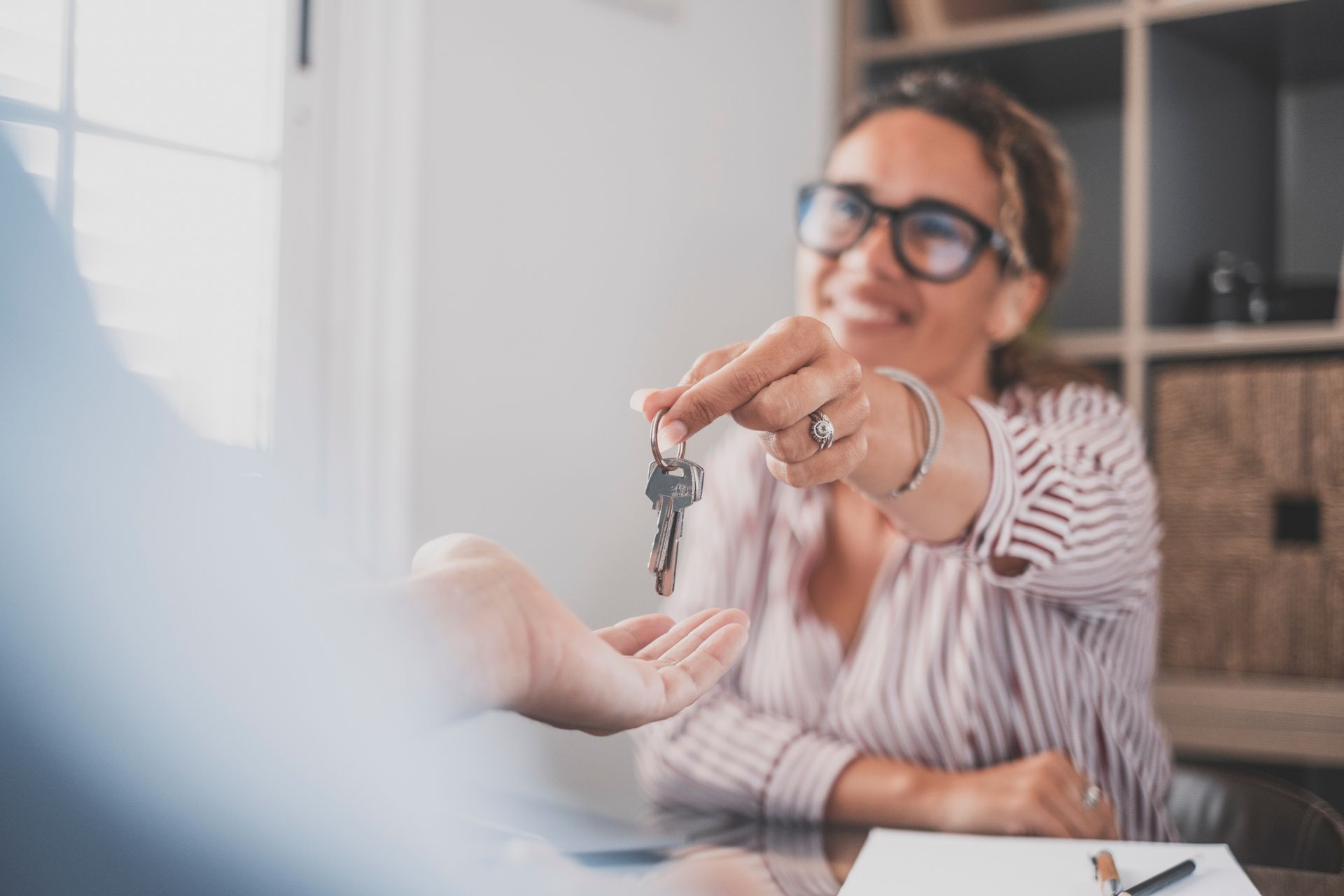Blog Layout
Legislative Update: Tort Reform, Evictions, Remote Online Notarization & Broadband
LOUISIANA REALTORS • May 13, 2020
Despite COVID-19 both the Louisiana House of Representatives and Louisiana Senate have continued to hold committee meetings and floor proceedings this week. Capitol halls are far less crowded and committee procedures are greatly altered. But debate has continued, and Louisiana REALTORS® has continued to successfully advocate on behalf of the membership.
View Legislative Bill Tracker as of 5/13/2020
Thursday, May 14th was a significant day for your political advocacy program. Louisiana REALTORS prevented a bill pertaining to evictions from moving forward and assisted in moving forward a bill authorizing remote online notarization for certain acts. More about each bill can be found below. Your Louisiana REALTORS® advocacy team spoke to legislators about both bills on your behalf and was present at the Capitol during the debates.
This interactive Bill Tracking Report contains the position on each of these bills and others along with the status of each bill. Any bill on the list can be accessed and viewed in its entirety by clicking on the number of the bill on the left of the page. A few of these bills that are likely to be of interest to you are highlighted and explained below. Should you have any questions, contact Kim Callaway, Director of Legal & Governmental Affairs.
House Bill No. 274, Representative Ray Garofalo
What:
This bill proposes to authorize the performance of notarial functions remotely using technology. Remote online notarization is when documents are notarized in an electronic form where the signer uses an electronic signature and appears before the notary using online audio-video technology.
If passed, remote notarization would not be immediately available in Louisiana, possibly not until February 2022.
Status: Pending House final action
Position:
Support
Why:
This would make some real estate closings more efficient and NAR has supported similar efforts since November of 2018. In its present form, the bill would not allow for most residential closing with a mortgage to use this technology because these transactions require an authentic act and the legal community is not comfortable completing these acts remotely.
House Bill No. 388, Representative Mandy Landry
What:
In its its essence, this bill sought to delay the time in which a landlord could evict a tenant for nonpayment of rent and prohibit the waiver by the tenant of certain notice requirements. An amendment was added during committee to further delay certain payments not made at the beginning of the COVID-19 crisis.
Status:
The House Civil Law and Procedure Committee involuntarily deferred the bill Thursday, May 14, 2020. The bill will not move forward this session.
Position:
Oppose
Why:
This bill would have further delayed a landlord from placing a paying tenant in his or her property. There are inherent time delays built into legally evicting a tenant for non-payment. The landlord must first file a rule for possession with the proper court or justice of the peace. The sheriff or constable must then serve the tenant with notice of the rule and then a hearing must be scheduled. None of this happens overnight. Like tenants, landlords have bills to pay and any time a landlord does not receive a payment or timely receive a payment there is a ripple effect that may cause the landlord to not be able pay bills or to provide for his or her family.
Senate Bill No. 418, Senator Kirk TalbotHouse Bill No. 9, Representative Ray Garofalo
What:
These bills are nearly identical and seek to reform Louisiana laws and procedures about lawsuits to lower auto insurance premiums and improve Louisiana’s legal climate.
Status:
Senate Bill No. 418, Pending Senate final passage. House Bill No. 9, Pending House final passage
Position:
Support
Why:
In a 2019 survey of members of Louisiana REALTORS®, you told us that keeping up with technology was your biggest operational concern, but the top second and third concerns were the potential for litigation and insurance costs. If this bill become law, the hope is that your potential for litigation will be reduced and your insurance costs will go down.
Bill No. 422, Representative Julie Emerson
What:
This bill would have required the Louisiana Real Estate Commission to issue licenses to those who completed apprenticeships in any state instead of the person taking the standard courses and exams. It was questionable how this would be implemented by the Louisiana Real Estate Commission and if it would require brokers to set up apprenticeship programs.
Status:
Pending House final passage
Position:
Opposed in original format; neutral following amendment of bill
Why:
Louisiana REALTORS® worked with the author to make it optional rather than mandatory for the Louisiana Real Estate Commission to issue licenses to those who complete apprenticeships. This also ensures that brokers will not be required to set up apprenticeship programs.
House Bill No. 622, Representative Julie Emerson
What: This bill would have mandated that the Louisiana Real Estate Commission issue a real estate license to anyone who held a real estate license in another state and to people who had worked in real estate in another state but were not licensed.
Status:
Defeated in House Commerce Committee
Position: Opposed
Why: The Louisiana Real Estate Commission is responsible for protecting the public by establishing responsible licensing standards, ensuring compliance with those standards, and sanctioning bad actors. Mandating that the LREC grant a real estate license to anyone who simply worked in a real estate office out of state would shift the burden of ensuring qualifications from experts to consumers and expose the public to greater risk from unqualified practitioners.
Senate Bill No. 406, Senator Beth Mizell
What:
This bill seeks to make it easier for broadband providers to install their services by allowing them to collaborate with municipalities, electric cooperatives, and utility companies to construct, maintain, and operate broadband systems.
Status: Pending Senate final passagePosition: For
Why:
REALTORS® now more than ever rely on streaming video and virtual tours to assist clients in buying and selling property. REALTORS® need high-speed internet to do this and their clients need high-speed internet to telework, access virtual classrooms, and access telemedicine. REALTORS® know that affordable high-speed broadband is almost as necessary as water and electricity because their clients, your constituents, are demanding it.
House Concurrent Resolution 77, Representative Clay Schexnayder
What:
This resolution requests that the Broadband for Everyone in Louisiana Commission identify public and private sector barriers which impede the expeditious expansion of high-speed broadband in the state and make recommendations on how to remove these barriers.
Status: Pending House final passagePosition: ForWhy: Expeditious expansion of high-speed broadband in the state is necessary to overcome the practical and economic consequences of the current lack of access. Various barriers are created by the public and private sectors which stall the expeditious expansion that the state's citizens and economy need. The removal of these barriers would benefit Louisiana families, businesses, consumers, educational institutions, and students and allow for a more robust and better-connected economy.
House Concurrent Resolution 78, Representative Clay Schexnayder
What:
The resolution requests that the Broadband for Everyone in Louisiana Commission within the office of the governor to create and provide broadband maps to identify access and activation gaps.
Status:
Pending House final passage
Position: For
Why:
The United States Department of Agriculture currently provides loans and grants to states to increase high-speed internet access in rural areas. Reliable and accurate mapping of current broadband access and activation gaps is critical to effectively utilizing these resources, but the currently available broadband maps have proven to be unreliable and inaccurate. A local approach may produce more reliable and accurate maps to utilize these resources.
Share
Tweet
Share
Mail
About Us
All rights reserved.
Useful Links
Contact Info
821 Main StreetBaton Rouge, LA 70802
821 Main Street
Baton Rouge, LA 70802
Subscribe to Our Newsletter
Subscribe to newsletter
Thank you for subscribing to our newsletter.
Oops, there was an error sending your message.
Please try again later.
Please try again later.




